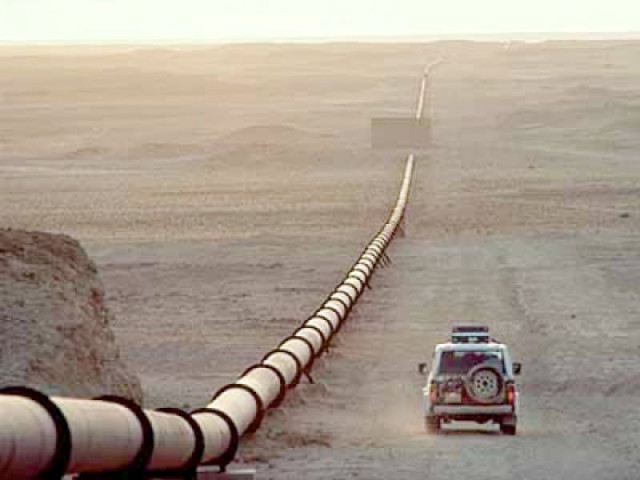Backing: Government decides to give legal cover to gas cess
Will issue ordinance after Supreme Court rejected the levy.

In a bid to give legal cover to collection of more than Rs100 billion in gas infrastructure development cess (GIDC), the federal government has decided to issue an ordinance following the Supreme Court’s dismissal of a plea to legalise the levy.
In the meantime, the Ministry of Petroleum and Natural Resources has filed a review petition against the court decision.
Speaking at a press conference here on Tuesday, Petroleum Secretary Abid Saeed said the government had decided to issue the ordinance on Tuesday to continue collecting the cess as the law ministry had given the go-ahead.
If the court dismissed the review petition, the approval of cess would be sought from parliament through a money bill.

Petroleum Minister Shahid Khaqan Abbasi told the media that the government had collected Rs84 billion in cess from gas consumers since 2011 and compressed natural gas (CNG) stations and fertiliser producers owed another Rs22 billion.
“This money will be spent on laying Iran-Pakistan (IP) and Turkmenistan, Afghanistan, Pakistan and India (TAPI) gas pipelines, liquefied natural gas (LNG) imports, regulation of liquefied petroleum gas (LPG) prices and gas infrastructure.”
He revealed that an LNG transporting pipeline would be laid from Karachi to the country’s north at a cost of Rs100 billion to enhance the capacity. The current pipeline network can transport 280 million cubic feet of LNG per day.
Talking about the IP pipeline, Abbasi said talks were going on with Iran as Pakistan could face a penalty if it failed to execute the project. “The government has served a force majeure notice on Iran.”
The project cannot be implemented because of US sanctions and to show its seriousness the government is proposing an alternative plan under which an LNG pipeline will be laid from Gwadar to Nawabshah.
Abbasi was of the view that the plan was commercially viable with support from Japan, Russia and China, which had taken keen interest in participating in the project.
“After US sanctions are lifted, we will award a separate contract for laying a 70km pipeline to connect with the Iranian border.”
Gas theft
Giving the estimate of loss caused by gas theft, the petroleum minister claimed that Sui Northern Gas Pipelines was losing Rs10 billion in revenue in the wake of 4% gas theft, of which 2.5% was detected in Karak, Khyber-Pakhtunkhwa.
“We have planned to launch a Rs8 billion project on a cost-sharing basis with the province to legalise gas connections in this area,” he said, adding K-P had agreed to contribute to the cost.
The minister pointed out that a consultant of the Oil and Gas Regulatory Authority (Ogra) had recommended setting the unaccounted-for-gas (UFG) ceiling at 7.5%, but the regulator did not accept it. Now, it has hired a new consultant for undertaking the study afresh.
“We will issue policy guidelines to the regulator to bail out gas utilities, which require technology to check theft as even the gas theft law has failed to bear fruit.”
LPG prices, LNG import
Abbasi announced that the government intended to regulate LPG prices, for which a proposal would be tabled before the Council of Common Interests (CCI).
He declared that the country would experience load-shedding in winter in the same way as it faced last year. “If we are able to import LNG, then the situation may be better.”
The government is also working on a plan to facilitate the private sector in supplying LNG to the CNG industry. LNG would be 30% cheaper than petrol and Ogra would not regulate prices, he said.
He stressed that the government was working on two options for LNG import – a government-to-government deal and invitation of bids. It is in contact with a consultant to decide whether a long-term LNG import deal should be sealed.
Abbasi announced that the government would appoint heads of oil and gas companies considering recommendations of the board of directors. He also warned that action would be taken against officials of Oil and Gas Development Company (OGDC) which were involved in delaying contracts for Nashpa and Kunnar Pasakhi Deep fields.
The ministry is also working on a policy to install separate gas meters in industrial units –one covering gas supply to captive power plants and another recording industrial consumption.
Published in The Express Tribune, September 24th, 2014.
Like Business on Facebook, follow @TribuneBiz on Twitter to stay informed and join in the conversation.



















COMMENTS
Comments are moderated and generally will be posted if they are on-topic and not abusive.
For more information, please see our Comments FAQ